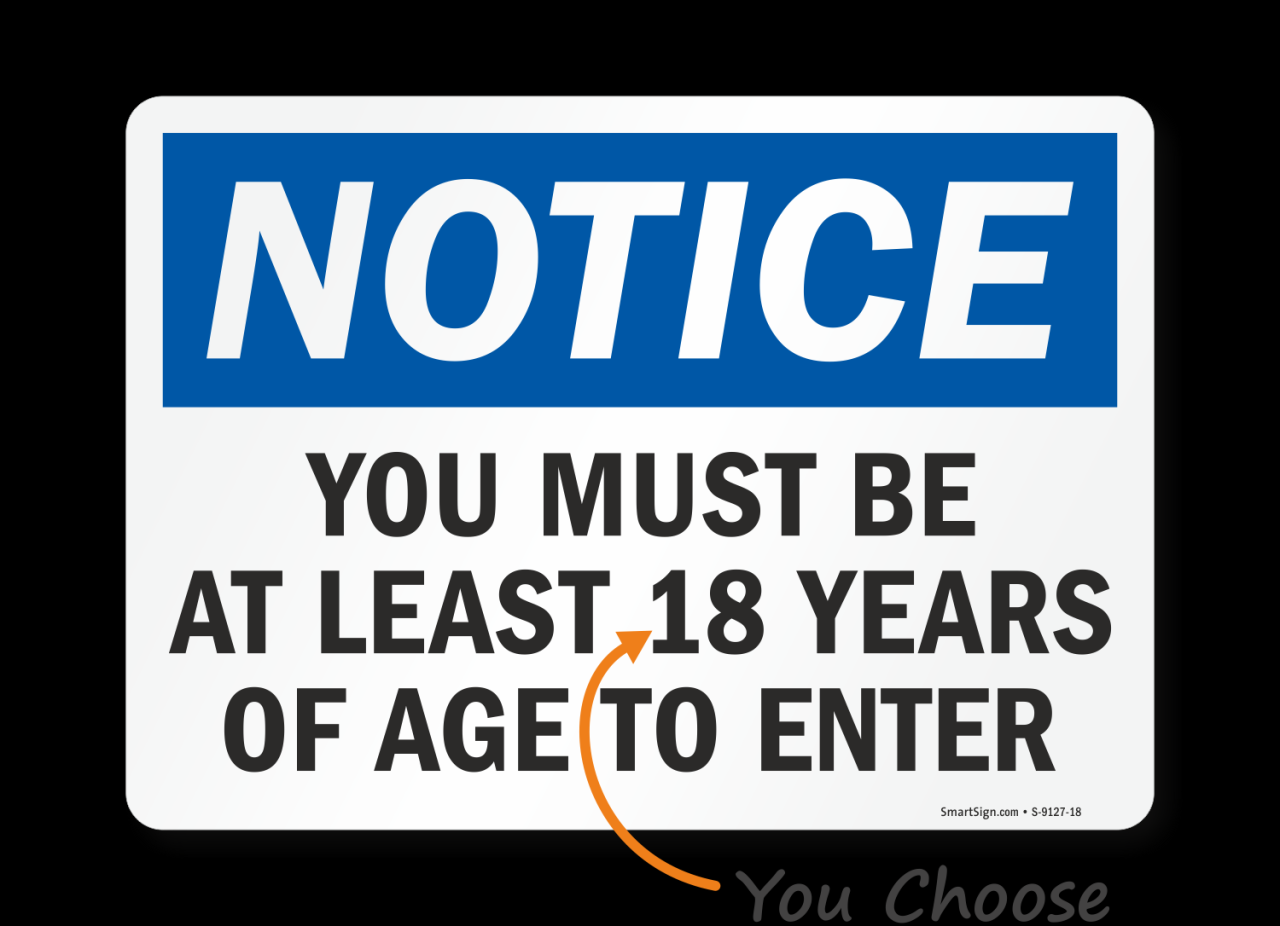If you are 18 years old with no debt or dependents – If you’re 18 years old, debt-free, and have no dependents, you have a unique opportunity to shape your future. This guide will provide you with the tools and insights you need to make the most of this incredible time in your life.
We’ll cover everything from financial planning and career exploration to personal development and travel. Whether you’re just starting to think about your future or you’re already well on your way, this guide will help you reach your full potential.
Financial Planning
Being debt-free at 18 years old is a significant advantage that can set you up for financial success in the future. Here’s why:
- Financial freedom: You have more flexibility and control over your finances, as you don’t have to worry about making debt payments.
- Lower expenses: Debt can accumulate interest, which adds to your overall expenses. Being debt-free means you save money on interest charges.
- Improved credit score: A good credit score is essential for obtaining loans and credit cards with favorable terms. Being debt-free helps you build a positive credit history.
Creating a Budget
Creating a budget is crucial for managing your finances effectively. Here are some tips:
- Track your income and expenses: Use a budgeting app, spreadsheet, or notebook to record all your income and expenses.
- Categorize your expenses: Divide your expenses into categories such as housing, transportation, food, and entertainment.
- Set financial goals: Determine your short-term and long-term financial goals, such as saving for a down payment on a house or retiring early.
- Allocate your funds: Once you know your income and expenses, allocate your funds to different categories based on your priorities and financial goals.
- Review and adjust regularly: Your budget is not set in stone. Review it regularly and make adjustments as needed to ensure it aligns with your financial goals.
Saving Money
Saving money is essential for financial security and achieving your financial goals. Here are some strategies:
- Set up a savings account: Open a dedicated savings account and automate regular transfers from your checking account.
- Reduce unnecessary expenses: Identify areas where you can cut back on spending, such as dining out or entertainment.
- Negotiate lower bills: Contact your service providers (e.g., phone, internet) to negotiate lower rates or payment plans.
- Explore passive income streams: Consider investing in dividend-paying stocks, rental properties, or other sources of passive income to supplement your earnings.
- Take advantage of tax-advantaged accounts: Contribute to tax-advantaged accounts such as 401(k)s and IRAs to reduce your tax liability and grow your savings.
Investing for the Future
Investing is a powerful tool for building wealth and securing your financial future. Here are some tips:
- Start early: The earlier you start investing, the more time your money has to grow through compound interest.
- Diversify your portfolio: Spread your investments across different asset classes (e.g., stocks, bonds, real estate) to reduce risk.
- Invest for the long term: Stock markets fluctuate, but over the long term, they tend to trend upwards. Stay invested during market downturns to ride out the fluctuations.
- Consider professional advice: If you’re new to investing or need guidance, consider seeking professional advice from a financial advisor.
- Monitor your investments: Regularly review your investments and make adjustments as needed to ensure they align with your financial goals and risk tolerance.
Career Exploration
For individuals with no dependents and no debt at 18 years of age, the world of career opportunities lies wide open. Embarking on a journey of career exploration is crucial to identify a path that aligns with your interests, skills, and aspirations. This involves researching different career options, networking, and building professional relationships.
Researching Career Options
Begin by exploring various industries and job titles that spark your curiosity. Attend career fairs, connect with professionals on LinkedIn, and utilize online resources such as the Occupational Outlook Handbook (OOH) and CareerOneStop. Consider your strengths, interests, and values to narrow down potential career paths.
Networking and Building Relationships
Networking plays a vital role in career exploration. Attend industry events, join professional organizations, and reach out to individuals in your desired field. Seek informational interviews to gain insights into different roles and company cultures. Building strong professional relationships can open doors to opportunities and provide valuable guidance throughout your career journey.
Personal Development
Personal development encompasses the ongoing process of growth and self-discovery throughout one’s life. It involves enhancing skills, expanding knowledge, and fostering positive personal qualities. Embracing personal development is crucial for leading a fulfilling and meaningful life.
Setting Goals
Establishing clear and achievable goals provides direction and purpose. Start by identifying your aspirations, breaking them down into smaller, manageable steps, and setting realistic timelines. Use the SMART (Specific, Measurable, Achievable, Relevant, and Time-bound) framework to ensure your goals are well-defined.
If you are 18 years old with no debt or dependents, you may not think you need life insurance. However, even at a young age, life insurance can provide peace of mind and financial protection for your loved ones. There are many top-rated life insurance policies available, so it is important to compare quotes and find the policy that best meets your needs.
If you are 18 years old with no debt or dependents, now is the time to start thinking about life insurance.
Developing Healthy Habits
Cultivating healthy habits is essential for overall well-being. Focus on building positive routines, such as regular exercise, nutritious eating, and adequate sleep. Establish a consistent schedule, engage in activities you enjoy, and seek professional guidance when needed.
Building Confidence
Self-confidence is a key component of personal development. Believe in your abilities, acknowledge your strengths, and learn from your mistakes. Practice self-reflection, set achievable challenges, and surround yourself with supportive individuals.
Seeking Mentorship and Support
Mentorship and support from others can accelerate personal growth. Identify individuals who inspire you, possess valuable knowledge, and are willing to guide you. Attend workshops, join support groups, and connect with peers to broaden your perspectives and gain valuable insights.
Education and Training
As an 18-year-old with no debt or dependents, you have the opportunity to invest in your future through higher education or vocational training. This investment can pay off significantly over your lifetime, both financially and personally.
If you are 18 years old with no debt or dependents, you may not need life insurance. However, you may want to consider accidental death and dismemberment (AD&D) insurance. AD&D insurance provides coverage for accidental death or dismemberment, which can help you pay for medical expenses, lost wages, and other costs.
If you are 18 years old with no debt or dependents, AD&D insurance may be a good way to protect yourself financially in the event of an accident.
There are many different options available for pursuing higher education. You can choose to attend a traditional four-year college or university, a community college, or an online program. Each type of institution has its own advantages and disadvantages, so it’s important to do your research and find the one that’s right for you.
If you are 18 years old with no debt or dependents, you may not think you need life insurance. However, voluntary life insurance can provide peace of mind and financial protection for your loved ones in the event of your untimely death.
Even if you do not have any dependents, voluntary life insurance can help cover the costs of your funeral and other expenses.
If you’re not sure what you want to study, you can start by taking some general education courses at a community college. This will give you a chance to explore different subjects and figure out what you’re passionate about.
Choosing the Right Program
- Consider your interests and career goals.
- Research different programs and compare their curricula.
- Talk to people who work in the field you’re interested in.
- Visit different schools and talk to the faculty and students.
Once you’ve chosen a program, you’ll need to find a way to pay for it. There are a number of different financial aid options available, including scholarships, grants, loans, and work-study programs.
It’s important to remember that education is an ongoing process. Even after you’ve graduated from college or vocational school, you’ll need to continue learning and developing your skills throughout your career.
Lifelong Learning and Skill Development, If you are 18 years old with no debt or dependents
- Take advantage of online courses and workshops.
- Attend industry conferences and events.
- Read books and articles related to your field.
- Network with other professionals in your industry.
By investing in your education and training, you’re investing in your future. You’re giving yourself the skills and knowledge you need to succeed in your career and achieve your financial goals.
Travel and Exploration
Traveling and exploring new cultures offer immense benefits for personal growth and well-being. Embracing different perspectives, customs, and ways of life fosters a deeper understanding of the world and oneself. It challenges preconceived notions, broadens horizons, and cultivates empathy and tolerance.
Planning and Budgeting for Travel
Effective travel planning and budgeting are crucial to maximize experiences while ensuring financial responsibility. Determine a realistic budget based on your financial situation and travel goals. Research destinations thoroughly, considering factors such as visa requirements, travel costs, accommodation options, and local expenses. Explore discounts, deals, and off-season travel to save money. Consider a travel rewards credit card to earn points or miles towards future trips.
Meaningful Travel Experiences
To make travel truly meaningful, focus on experiences that align with your interests and values. Engage with locals, learn about their culture, and support local businesses. Visit historical sites, explore natural wonders, or participate in cultural activities. Take time for reflection and introspection, journaling your experiences and insights. Travel can be a catalyst for personal growth, self-discovery, and a renewed appreciation for the diversity of human experience.
Final Conclusion: If You Are 18 Years Old With No Debt Or Dependents
As an 18-year-old with no debt or dependents, you have a world of possibilities ahead of you. This guide has provided you with the knowledge and resources you need to make the most of this exciting time in your life. Remember to stay focused, work hard, and never give up on your dreams. The future is yours for the taking!







1 thought on “If Youre 18, Debt-Free, and Independent: A Guide to Unlimited Potential”